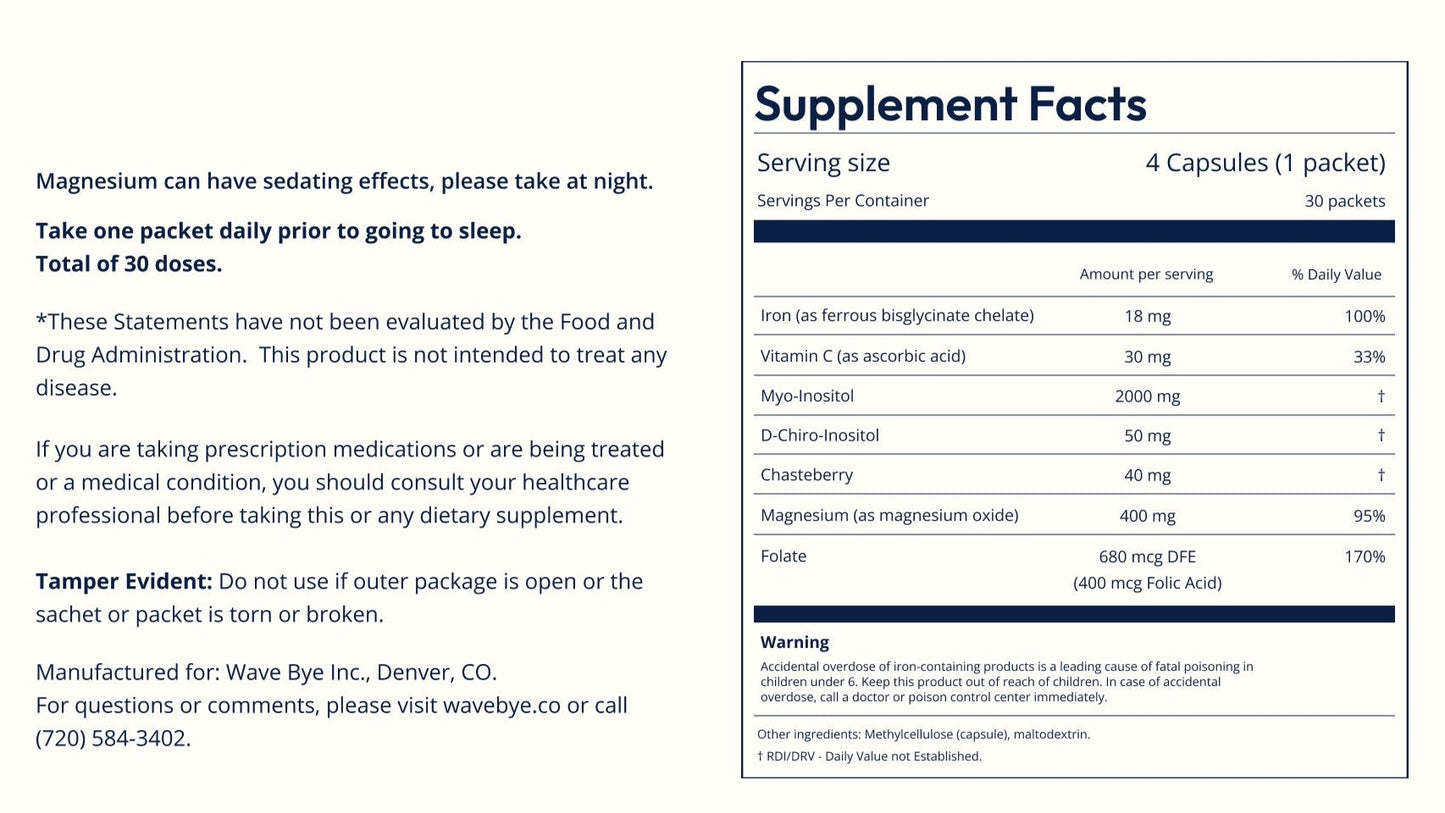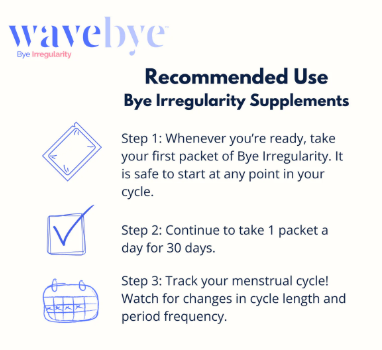



Why You’ll Love Bye Irregularity
-

No Hormones, No Side Effects
Enjoy effective, natural relief without the worry of hormonal side effects.
-

Clinically Proven Ingredients
Ingredients proven by evidence: Supports healthy menstrual cycles with Inositol (to restore regularity), Iron Bisglycinate (to mitigate performance loss from fatigue), and Magnesium Oxide (to target debilitating migraine).
-

Pre-Menstrual Prevention
Take before your period to reduce headaches before they even start.
-

Convenient, Nightly Use
Take nightly to keep your cycle length regular and prevent more symptoms than just pain and bleeding.
How To Take
-
1
Nightly
Take 1 packet every night for 30 days.
-
2
During Menstrual Cycle
Continue to take 1 packet a night throughout your whole cycle.
-
3
Repeat
For ongoing relief, take 1 packet daily until you finish the box.
If you are taking prescription medications or are being treated for a medical condition, consult your healthcare professional before taking this or any dietary supplement.



Ingredients
Bye Irregularity Supplements
Magnesium Oxide
Has been demonstrated to prevent menstrual migraine when taken prior to migraine onset.*
Chasteberry
Widely used to provide relief of PMS symptoms including mood swings, bloating and breast tenderness.*
Folic Acid
A recommended supplement for individuals who may potentially become pregnant.* Indicated for the prevention of neural tube defects.
Inositol
Shown to improve insulin resistance – a key component of PCOS – and restore menstrual regularity. May also promote ovarian health.*
Iron Bisglycinate + Vitamin C
A unique version of iron designed to be gentle on your GI tract, coupled with vitamin C to maximize absorbancy.* Iron is indicated for the prevention and treatment of iron deficiency anemia.
Customer Testimonials

Nikka
Real UserWave Bye has been so beneficial to period care and pain management. Bye Irregularity was everything! When I tell you my cycle tracker predicted the day that my cycle would start, literally that day, on the dot, my cycle started. And that usually never happens. Usually it's a couple of days earlier or multiple of days late.

Nicole
Real UserI've had irregular periods since I was 13, so I can’t wait to see how Bye Irregularity regulates my period over the next few months!

Maya
Real UserI’ve told so many of my friends about Bye Irregularity because I felt less stressed and I slept better than I usually do during key points in my cycle. I want all the women I know to try it for themselves!

Maggie
Real UserI’m grateful Bye Irregularity has folic acid in it because my partner and I have been trying to conceive.
Common Questions
1) What is menstrual regularity? +
- Menstrual regularity simply means having periods that occur at consistent intervals each month. This is typically between 24-38 days but will vary individually.
2) How regular should your periods be? +
- Periods are considered regular if they occur roughly the same number of days apart each month, usually within a 2-3 day variation.
3) What is considered an irregular period? +
- In general, irregular periods are cycles shorter than 21 days, longer than 35 days or vary significantly from month to month. Of course, everyone is different, so it’s worth consulting with your provider if you’re not sure.
4) Why are my periods getting closer and closer together? +
- If your period is arriving sooner every month, it could be due to hormonal changes like perimenopause, stress, thyroid issues, or other medical conditions. It’s always best to consult a healthcare provider to identify the cause.







